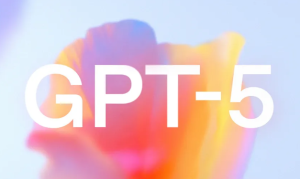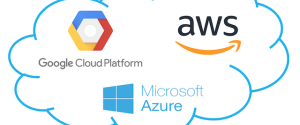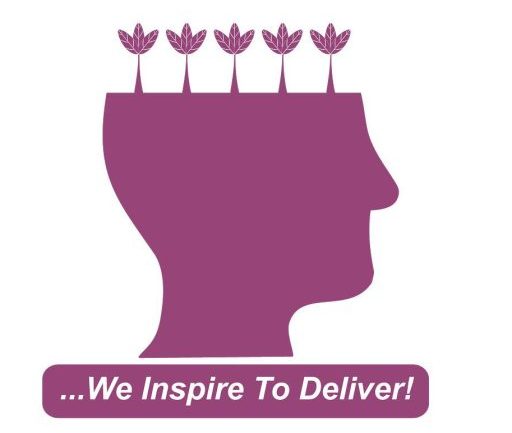Hey, Tech enthusiast! Your Daily Dose of Tech This Tuesday is here @DawentsIT …We Inspire To Deliver!
Your Daily Dose Of Technology News – August 26, 2025.
1. Consumer Tech & Devices:

– Apple: Rumors and supply-chain notes indicate Apple prepping a fall iPad/MacBook chipset refresh and software updates that include deeper on-device ML functionality and expanded ARKit tools. No major new hardware launch was confirmed today.
– Samsung / Pixel: Samsung previewed a Galaxy One UI update with integrated AI note-taking features; Google detailed an upcoming Pixel update focused on on-device generative features and photography improvements.
– AR/VR: Meta announced developer incentives for Quest 3/4 content optimized for mixed-reality passthrough. Startups continue to focus on lighter XR headsets and enterprise AR use-cases (maintenance, training).
Implications: Incremental AI features will become ubiquitous across devices; more advanced AR/VR hardware remains centered
In Other News:
2. Tech Policy & Regulation:
– EU and UK coordination: The EU’s AI Act enforcement bodies issued clarifications on obligations for open-source model providers and provenance reporting. The UK’s new AI Safety Authority released draft guidance on “high-risk” system audits. Both emphasize documentation, risk assessments, and provenance for datasets and model weights.
– US legislative movement: U.S. Congressional committees circulated draft AI-related bills focused on critical infrastructure protections, federal procurement standards for AI, and data provenance. An executive branch working group is reportedly preparing guidance for federal agencies on model sourcing and supply chain risk.
– Antitrust / Big Tech oversight: The U.S. FTC and DOJ continue reviewing potential remedies in ongoing Big Tech investigations. Separately, several state AG offices signaled interest in inquiries around AI-driven ad auctions and data market practices.
Implications: Companies operating internationally must increasingly align to multiple compliance regimes. Expect more operational compliance costs and a growing market for audit/assurance services.
3. AI / Generative Models:

– OpenAI releases GPT-5 “Capstone” (public preview): OpenAI announced GPT-5 Capstone, a multimodal large model with improved reasoning, longer context (reportedly 2 million tokens in preview), and tighter browsing and tool-use integration. New features highlighted: real-time factuality checks, built-in retrieval-augmented generation (RAG) with user-controlled source citation, and tool-safety “sandboxes” that restrict actions (code execution, web operations) unless explicitly enabled. Pricing and tiering ties multimodal capabilities to higher enterprise tiers; a free tier with limited multimodal and shorter context remains. Reaction: strong interest from enterprises and developers; regulators and researchers flagged safety, hallucination metrics, and concentration-of-power concerns.
– Anthropic updates Claude 3 and safety features: Anthropic launched Claude 3.2 with improved instruction-following, a multimodal API, and an emphasis on constitutional AI safety improvements. They published new benchmarks showing gains on refusal calibration and adversarial robustness. Like OpenAI, Anthropic emphasizes enterprise deployments and compliance tooling.
– Google DeepMind/Google AI: Google introduced a new Gemini X update with expanded memory and “workspace” features for long-term projects, plus better tool integration across Google apps. Google also announced stricter verification for apps accessing Gemini’s web tools. Google emphasized on-device assistant deployments for Pixel 10 Pro updates.
– Smaller announcements & policy trends: Startups are shipping specialized multimodal models (video-centric, medical, scientific). Regulators in the EU and UK continue drafting model transparency rules; US lawmakers revisited proposals for AI model audits and watermarks.
Implications: Rapid rollout of higher-capability multimodal models is accelerating enterprise AI adoption, but also intensifies debates on safety, access, and market concentration. Expect more enterprise governance, standardized evaluation metrics, and regulatory scrutiny.
4. Hardware & Semiconductors:
– TSMC/Intel/ Samsung capacity updates: TSMC confirmed stepped-up investments in advanced logic fabs in Arizona and Taiwan, while Intel reiterated plans for further IDM 2.0 capex to expand US fabs. Samsung signaled a strategic shift increasing foundry collaboration in the U.S. and EU. Capacity-building announcements aim to ease the chip shortage risk for AI accelerators and automotive chips.
– Nvidia earnings and Hopper/Blackwell H100 successors: Nvidia’s revenues remain elevated on data-center GPU demand. The market is watching leaks and roadmap hints around next-generation Blackwell follow-ons and efforts to integrate more on-chip memory and sparsity optimizations.
– AI accelerators & startups: Several startups unveiled domain-specific chips for inference at the edge (video analytics, robotics) and for LLM fine-tuning. Arm updated its Neoverse platform with new AI-oriented extensions targeted at servers and edge gateways.
Implications: Continued heavy capex in semiconductors will keep supply shifting over the next 2–3 years; competition among foundries may ease pricing pressures for cloud and AI hardware eventually.
5. Microsoft Launches Azure Quantum Cloud Services Worldwide:
Microsoft officially rolled out its Azure Quantum platform globally today, enabling businesses and researchers worldwide to access quantum computing resources through the cloud. The platform offers integration with multiple quantum hardware providers, including IonQ and Honeywell, as well as a suite of development tools aimed at accelerating quantum algorithm design. Microsoft emphasized quantum computing’s potential to solve complex problems in fields such as materials science, cryptography, and logistics. Early enterprise clients have already begun pilot projects leveraging Azure Quantum to explore breakthroughs in drug discovery and optimization challenges.
Odds And Ends:
6. Cloud, Enterprise Software, and Developer Tools:

– Multi-cloud and AI-native stacks: Major cloud providers (AWS, Azure, Google Cloud) added new managed services enabling easier deployment of multimodal models, including managed RAG, vector DB integrations, and model governance dashboards. AWS announced a partnership with a major model provider for an enterprise LLM marketplace.
– Mergers / acquisitions: Several mid-size SaaS firms reported acquisitions focused on embedding AI (e.g., analytics, document automation). Private equity interest in enterprise AI orchestration startups remains high.
– Dev tools: GitHub (Microsoft) and GitLab released upgraded AI-assisted coding features with improved local privacy modes and licensing guidance for generated code.
Implications: Enterprises are accelerating AI projects; vendor lock-in and governance remain key concerns. Expect continued consolidation in the enterprise AI tooling market.
Summary:
This roundup covers some of the most prominent technology developments and announcements from August 26th, 2025. If you need a summary on any specific topic or more detailed information on emerging tech trends, feel free to ask us @DawentsIT or visit our website at www.dawentsit.com
Follow us for updated news, articles, and videos. Read more on https://dawentsit.com/ #Technology #DawentsIT #TechnologyNews #Tech #Apple #iPad #MacBook #AI #Samsung #AR #VR #Galaxy #EU #UK #AISafetyAuthority #FTC #AllThingsTechnologyNews #AllThingsTechnologyNewsToday #WeInspireToDeliver
